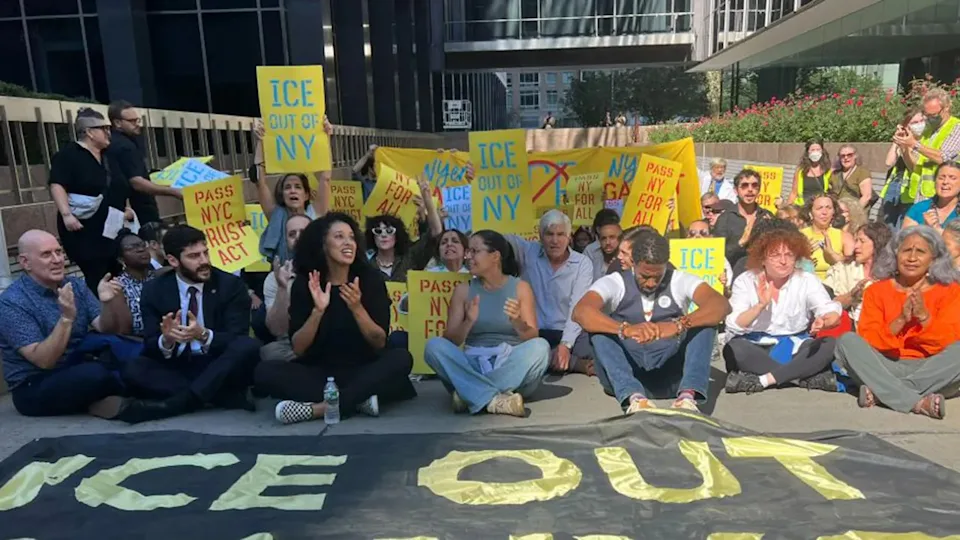Protest Wave: Chicago Prepares for Large ICE Protests
Chicago and the suburbs are preparing for a huge weekend of protests against U.S. Immigration and Customs Enforcement (ICE). The protests follow high tensions regarding the aggressive federal government immigration enforcement in the area, especially around the ICE processing center in Broadview, Illinois.
Organizers have rallied under banners like “No Kings Day”, presenting the protests as an act of resistance against the use of authoritarian means. Thousands are anticipated to form in downtown Chicago, while others will assemble near the Broadview ICE center.
Background: Broadview as Flashpoint in Operation Midway Blitz
These demonstrations do not come out of thin air. Since early September 2025, ICE has implemented “Operation Midway Blitz” throughout Chicago and its suburbs — a sweep targeting unauthorized immigrants, particularly those with criminal histories. The Broadview iCE center has been the public focus of anger, as reports have circulated of confrontational methods,enforced scarcity of transparency,and prohibited protest activity around the location
Federal courts have, in recent weeks, stepped into the fray by mandating that ICE agents adhere to more stringent procedures: taking down metal fencing that encircles the facility, restricting riot control devices from being used without warning, and requiring body cameras in public encounters. These judicial interventions have rearranged the power dynamic among protesters, local police, and federal agents.
Friday’s Clashes: Arrests and Tensions
On Friday morning, protest action boiled over at the Broadview ICE facility. Protesters tried to push past areas set aside for protest activity, and Illinois State Police and local police responded. Through late evening, 15 had been arrested, with charges ranging from resisting, obstructing, and disobeying a police order. Among the arrested were a cleric and at least one musician.
While there were fights and skirmishes, Friday’s demonstrations eventually took on a more tranquil stance, with no additional mass arrests following the morning crackdown. Protests and community activists complained about excessive force and restrictions on where protests will be allowed. Local officials such as the Broadview mayor and Governor J.B. Pritzker have denounced federal enforcement tactics as heavy-handed and unaccountable.
Looking Ahead: What to Watch This Weekend
Massive Turnout Expected Downtown
The No Kings Day protests planned for Saturday are projected to attract big crowds not only to Broadview but also downtown Chicago. Protests seek to extend their message against what they see as overreach in immigration enforcement. Organizers emphasize the need for nonviolent civil disobedience and call for accountability.
Enforcement Boundaries Under Scrutiny
In light of recent judicial rulings, a focus will be on whether federal agents comply with the new requirements — particularly wearing body cameras and limiting use of riot gear without notice. Analysts will be watching for potential overreaches, especially in cases of confrontation.
Local vs Federal Jurisdiction Tensions
The protests also underscore tensions between federal administration and local governments. The leaders of Broadview have tried to control protest areas and curfews, while state and local police are left carrying out both city ordinances and court orders related to federal operations.
Conclusion
This weekend, Chicago stands at a turning point in its battle with ICE and federal immigration policy. The anticipated No Kings Day protests are more than a weekend protest — they are a test of civil rights, accountability, and the balance of enforcement power. Whether or not protests remain peaceful or erupt into violence will depend on how effectively local and federal officials respect boundaries of law and control crowd behavior. In any event, the weekend’s events may well mark a turning point in how immigration enforcement is contested on America’s streets.


